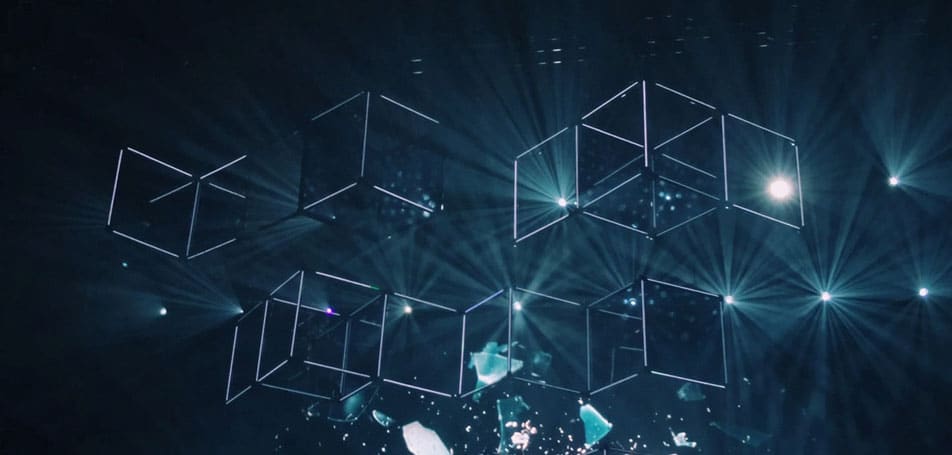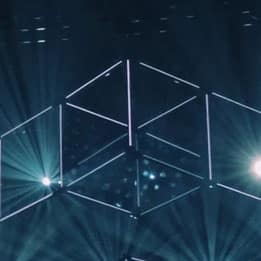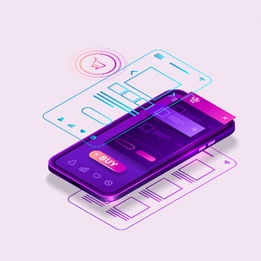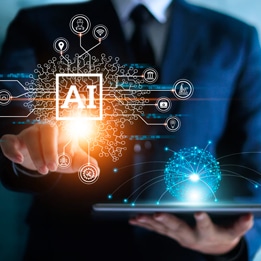
Technology has led to some fantastic breakthroughs in home automation. The Internet of Things (IoT) has transformed our homes into something straight from a science fiction movie. But this innovative technology has only just begun to scratch the surface of its potential. Imagine a day when your smartphone can schedule a meeting by accessing your calendar and then automatically telling your home system to notify you. Or a time when your home can learn your work schedule so that it can automatically start running a pot of coffee for you before waking?
These theories used to be seen only in science fiction, but with the help of IoT, it’s starting to become a reality.
Smart homes contain devices that are connected to the internet and are designed to make life easier. It uses smart technology that already exists and builds on it.
The History of Smart Homes Goes back Further than you Think
The origins of smart home technology date back to 1901 when the vacuum cleaner was invented. The goal has always been to reduce the amount of work by using machines. Only now, we’re using the IoT to accomplish this goal. Think about how the washing machine changed homes. It automated a task that took a lot of time and effort. It’s become so ingrained in our lives that we don’t even think about the fact that we used to wash clothes manually.
Since that time, we’ve seen the clothes dryer, irons, refrigerators, dishwashers, and garbage disposals all introduced to the home to add even more convenience to our lives. We just see the next steps of this innovative technology. Let’s look at a few examples:
- Washing machines that automatically order more detergent when low.
- Lights automatically turn off after a set period with no one in the room.
- Phone systems automatically alert medical personnel when an older person’s vitals are unusual.
Those are just three of the possibilities in this new age that we are being pushed forward by the IoT. Let’s look at a few additional ways that the IoT transforms our homes into something straight out of science fiction.
Homes Become Controlled Independently from Us
Ever forgot to lower the thermostat before leaving for work and then worry all day about how your electric bill is suffering? Utilities like heating can now be fully automated through the use of smart thermostats. Even coffee makers can be controlled through our smartphones and thus become fully automated. Since control is happening through an online connection, all of your home’s devices have the potential to be streamlined into a network. Now that the template has been set, we’re starting to see even more methods being developed with smart technology.
Devices Capable of Self-Diagnosis
We are anticipating that all devices are going to become self-diagnosed very soon. What I mean is that we’re moving into a time when machines will start being able to mature to the point of becoming attentive to maintenance. Manufacturers will be notified of potential defects, and will then inform consumers so that they can look at their options. In short, devices will be able to detect future malfunctions and help consumers be proactive about their maintenance.
Mastering the Art of Recognition
Security is a considerable concern for consumers today, so smart homes are becoming much more secure. Home automation is becoming advanced enough to incorporate state-of-the-art recognition of owners and their inner circle. Rather than having a doorbell sounding and then having to guess who’s at the door, home automation can now tell you, to some extent, who is outside. It can even alert you via your phone and provide you with a way to communicate with home visitors. Have you ever had relatives stop by while you were at the store? In the past, they had to wait until you arrived to unlock the home. However, we have the technology today that will allow you to open the door for them right from your smartphone.
Amazing Entertainment Systems Have Become a Reality
Using devices like Amazing Echo, or other smart devices derived from the Internet of Things, we have the potential to stream music to any room in our home quickly, and we can do it on command. But technology is adding even more to that by allowing for automated access to lights and even window blinds, allowing us to set the perfect mood. This is just one of the many ways entertainment is being enhanced through automated homes.
Leave a Smaller Carbon Footprint
IoT is not just a way to make us lazier, but it helps us lead more productive lives and also reduce our carbon footprint. Smart homes are much more energy efficient because they optimize everything. Systems can be set up to identify when no one is in a room and turn off the lights to raise the AC and lower the heat for that room. This will also save you money on your electric bill. There are many more examples.
Smart Kitchens
We’re starting to see the emergence of smart kitchens as the IoT becomes more innovative. Timed ovens and microwaves have been standard for years now, but what about having the ability to network them all together in such a way as to ensure they all finish at the same time? What about having the ability to heat foods while you’re on the way home from work? Devices like Alexa can network all of these kitchen appliances in a way that makes your kitchen work for you.
Final Thoughts
The Internet of Things has paved the way for a lot of innovative developments in home automation. This is beneficial to homeowners and businesses alike. Using data analytics services, companies can predict the needs of their consumers in unprecedented ways. Business analytics and home automation are a potent combination. For consumers, it ensures that they gain access to precisely what they need to live their lives while businesses gain enough information about their consumers to provide for those needs.
















